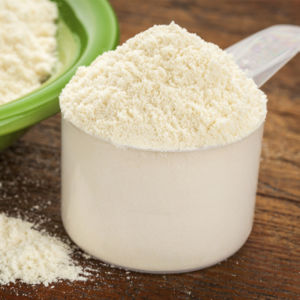
What does casein do?
Bioactive Milk Peptides
Chains of amino acids called “peptides” are produced as a result of digestive enzymes acting on casein. Many of of these peptides have the ability to influence significant biological processes which may beneficially affect us. This includes hormone secretion, immune defense and nutrient uptake.
Antibacterial Qualities
Casecidin – Resulting from digestion of casein, casecidin exhibits in vitro activity against many bacteria including Staphylococcus, Bacillus subtilis and Streptococcus pyogenes (1)
Casocidin 1 – Was found to be active against Escherichia coli and Staphylococcus carnosus (2)
Isracidin – Was found to protect mice against Staphylococcus auereus and also protect sheep and cows against mastitis equal to standard antibiotic treatment (1)
Blood Pressure Lowering Qualities
Patients all over the world take drugs known as “ACE Inhibitors” to lower blood pressure. They work by inhibiting angiotensin converting enzyme (ACE), which is an enzyme with the ability to raise blood pressure. ACE inhibitors are therefore very helpful for patients suffering with hypertension. ACE inhibitors called casokininshave been derived from casein (3,4). ACE inhibitory peptides have been shown to lower blood pressure in hypertensive rats (5). An exciting study was recently published in The American Journal of Hypertension, which revealed that a combination of milk proteins and exercise had the ability to lower blood pressure and reduce arterial stiffness in young obese women (14).
Anti-clotting Qualities
Casoplatelin is a peptide derived from casein which has the ability to affect platelets and cause a beneficial antithrombotic affect (6). Amazingly, two antithrombotic peptides have been identified in the plasma of newborns, both after breast feeding and ingestion of cow’s milkbased formula (7).
Calcium Absorption and Dental Carries
The American diet is notoriously low in calcium intake. The average adult requires 1200mg per day of elemental calcium however the average daily intake is approximately 650mg. This is extremely important in women who suffer from post-menopausal osteoporosis and therefore they usually supplement their diet with calcium and vitamin D.
Caseinophosphopeptides, are produced by digestion of casein. They are frequently found bound to calcium and result in increased absorption of calcium in the intestine (10). Animal studies revealed that they also have the ability to inhibit the formation of dental caries by recalcification of the dental enamel (11).
Stimulation of the Immune System
ACE Enzymes, in addition to raising blood pressure, also inactivate a substance called Bradykinin. Bradykinin has immune stimulating effects. Casokinins are immune enhancers by decreasing the inactivation of bradykinin. An additional benefit demonstrated by bioactive milk peptides was that phagocytosis by white blood cells was increased in their presence (10).
Casomorphins
This is a group of opioidkepetides with many beneficial actions (11). In the same way our body produces endorphins from exercise, casomorphins are exorphins with many of the same attributes (12, 13). In addition to affecting hormone secretion, they are active in the gastrointestinal tract in adults and may exert an anti-diarrheal action.
References
1. Labov, E., and W. Regelson. 1996. Antibacterial and immunostimulating casein-derived substances from milk: casecidin, iracidin peptides. Food Chem. Toxicol.. 34:131-145.
2. Zucht, H.D., M. Raida, K. Adermann, H.J. Magert, and W.G. Forssman. 1995. Casocidin-I: a casein alpha s2 derived peptide exhibits antibacterial activity. FEBS Lett. 372:185-188.
3. Kohmura M., N. Nio, and Y. Ariyoshi. 1990. Inhibition of angiotensin convering enzyme by synthetic peptides of human B-casein. Agric. Biol. Chem. 54:835-836.
4. Maruyama S., H. Mitachi, J. Awaya, M. Kurona, N. Tonizuka, and H. Suzuki. 1987. Angiotensin I-convering enzyme inhibitory activity of the C-terminal hexapeptide of alpha1 casein. Agric. Biol. Chem. 51:2557-2561.
5. Nakamura, Y., N. Yamamoto, K. Sakai, and T. Takno. 1995. Antihypertensive effect of sour milk and peptides isolated from it are inhibitors to angiotensin-converting enzyme. J. Dairy Sci. 78:1253-1257.
6. Jolles P., S. Levy-Tolcdano, A. M. Fist, C. Soria, D. Gillesen, A. Thomaidis, F. W. Dunn, and J. Caen. 1986. Analogy between fibrinogen and casein: effect of an undecapeptide isolated from casein on platelet function. Eur. J. Biochem. 158:379-384.
7. Chabanec, B., P. Jolles, C. Izquierdo, E. Mazoyer, C. Francoual, L. Drouet, and A.M. Fiat. 1995. Characterization of an antithrombotic peptide from kappa casein in newborn plasma after milk ingestion. Br. J. Nutr. 73:588-590.
8. Yuan Y.V., and D.D. Kitts. 1991. Conformation of calcium absorption and femoral utilization in spontaneously hypertensive rats fed casein phosphopeptide supplemented diets. Nutr. Res. 11:1257-1272.
9. Reynolds E., 1987. the prevention of sub-surface demineralization of bovine enamel and change in plaque composition by casein in an intra-orl model. J. Dental Res. 66:1120- 1127.
10. Jolles P., F. Parker, F. Floch, D. Migliora, P. Alliel, A. Zerial, and G.H. Werner. 1981. Immunostimulating substances from human casein. J. Immunopharmacol. 3:363-369.
11. Brantl V.H., Teschemacher, A., A. Hemshem, and F. Lottspeich,. 1979. Novel opioid peptides derived from casein (Beta casomorphins). Hoppe Zcylers Z. Physil. Chem. 360:1211-1216.
12. Zioudrou, C., R.A. Streaty, and W.A. Klee. 1979. Opiod peptides derived from food. The exorphins. J. Biol. Chem. 254:2446-2449.
13. Paroli E. 1988.Opioid peptides derived from food (the exorphins). World Rev. Nutr. Diet. 55:58-97.
14. Figueroa Arturo et al; Effects of milk proteins and combined exercise training on aortic hemodynamics and arterial stiffness in young obese women with high blood pressure. Am J Hypertens (2014)27(3):338-344.

